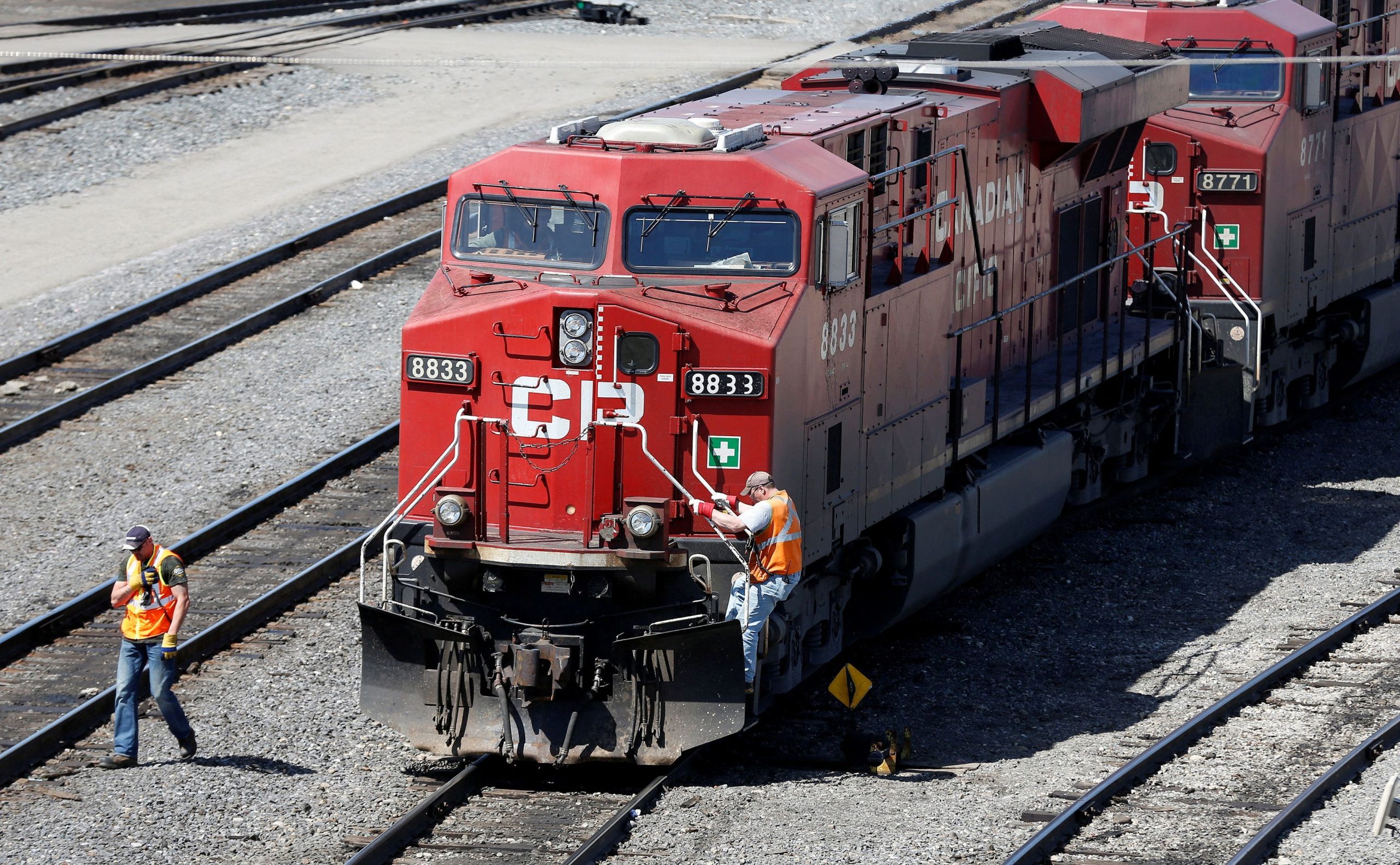Days ahead of a possible shutdown of Canadian Pacific Railway Ltd due to a labor dispute, manufacturers are rushing to move autos and chemicals, Nutrien Ltd is pre-positioning fertilizer in the United States, and grain handlers are asking farmers to hold off on crop deliveries.
CP, Canada’s second-biggest railroad, notified the Teamsters Canada Rail Conference on Wednesday that it will lock out 3,000 engineers, conductors and yard workers early on Sunday, barring a bargaining breakthrough.
CP says the main issue is the union’s demand for higher pension caps, while the Teamsters also flag concerns about pay and benefits.
Shippers say there are no significant workaround solutions in a vast country that depends primarily on two railroads to haul freight, and already has a trucker shortage.
The vessel lineup in Vancouver, Canada’s biggest port, is 20% larger than it was before severe British Columbia floods late last year, said Mark Hemmes, president of Quorum Corp, a company that monitors Prairie grain handling and transportation for the Canadian government.
Russia’s war with Ukraine has hiked demand for grain and fertilizer, two of CP’s main commodities.
“The circumstances are far more dire than ever before for any kind of railway work stoppage,” Hemmes said. “I could not conceive of a worse time.”
Nutrien could weather a CP shutdown lasting a few days, since it has moved potash from its Canadian mines to U.S. stores ahead of spring planting, said interim Chief Executive Ken Seitz.
A longer shutdown, however, would force Nutrien to consider slowing potash production, Seitz said, even as the company wants to boost output to satisfy soaring global demand.
“We find this situation particularly frustrating, given the need for crop nutrients in the world,” he said. “If (the shutdown) is measured beyond days, we could find ourselves in a situation where we have to throttle back production.”
The manufacturing sector, still recovering from U.S. border crossing shutdowns by protests, is desperately trying to find alternative ways to move everything from cars to chemicals and machinery for the oil and gas sector before any rail shutdown starts, said Dennis Darby, CEO of the Canadian Manufacturers & Exporters industry group.
Manufacturers and food processors are likely to slow production if CP shuts down next week, because most operate with little inventory space, Darby said.
The last major railway labor disruption was an eight-day Canadian National Railway Co strike in 2019. But in the past 12 years, there have been 12 stoppages due to poor weather, blockades or labor issues, according to the Western Canadian Wheat Growers Association.
Grain handlers are slowing farmer deliveries of crops to their storage facilities for fear that there will be too few trains to haul them, said Wade Sobkowich, executive director of the Western Grain Elevator Association, whose members include Cargill Ltd and Richardson International.
Switching to trucks is suitable mainly for short distances, Sobkowich said. There is little opportunity to make greater use of CN Rail with its grain transport having fallen behind in recent months, he said.
Asked if CP managers could operate some trains themselves, a company spokesperson said the railway would not be able to run during a lockout.
(Reporting by Rod Nickel in Chicago; Editing by Marguerita Choy)
